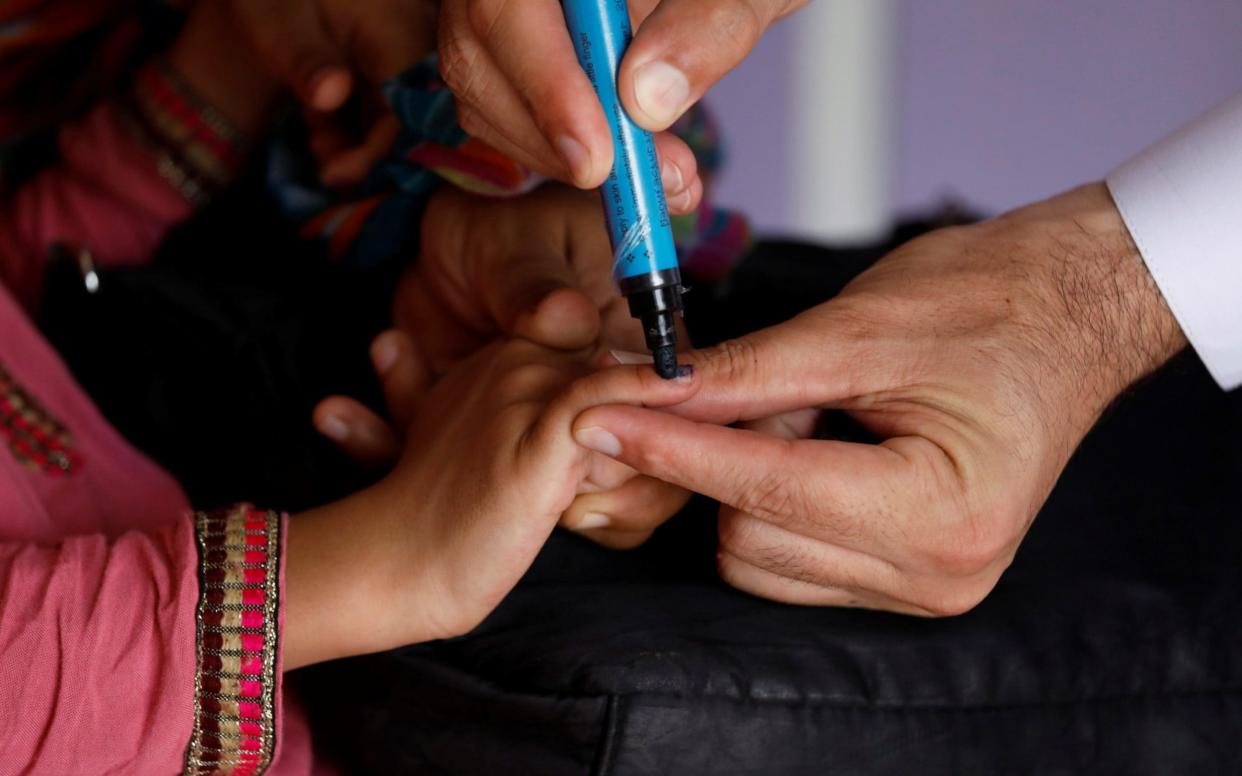Pakistan sees surge in polio cases as parents dupe authorities over vaccination status

Pakistan is seeing a surge in polio cases with numbers so far this year nearly four times the 2018 total, as health officials have admitted vaccination rates have been falsely recorded in the past.
The latest government figures show Pakistan has seen 45 cases of the deadly disease this year, the highest tally since 2015 and up from only 12 cases last year.
The rise in cases is expected to continue through the summer monsoon and comes after scientists have warned the 31-year global fight to eradicate the disease has stalled.
While the wild virus has been declared defeated everywhere except Pakistan, Afghanistan and Nigeria, the vaccine itself is also spawning strains in other parts of the world. These vaccine-derived cases arise when the weakened live virus used in the oral polio vaccine mutates and regains its virulence. Such a case was discovered in China earlier this month.
Babar Atta, prime minister Imran Khan's special adviser on polio, has said officials had previously claimed vaccination rates of well over 95 per cent, which should be enough to wipe out the virus in the wild.

Yet he said vaccination teams had been hiding refusals and allowing parents to mark their children's fingers with ink as if they had been vaccinated, even if they had not.
Health workers have long had to battle conspiracy theories that the Western funded campaign is a cover for spies, or a plot to sterilise Muslims. Social media rumours have fuelled concerns that the drops are harmful. But there is also resentment at the regular and occasionally heavy handed visits of vaccinator teams which are backed by police.
Local officials say parents suspicious of mass immunisation campaigns have been getting hold of special markers, used by health workers to put a coloured spot on the little fingers of children who have been vaccinated.
"They themselves would mark the fingers of their children, in case of any official visit to counter check the vaccinated children," one official associated with an international organisation told Reuters.
Mr Atta said earlier this month that an inquiry after a December 2018 outbreak had found that rather than reporting parents who refuse to get their children vaccinated, teams were handing parents identification markers to mislead monitoring teams.
Local teams of vaccinators have been recruited in recent years to try to overcome resistance. But local vaccinators are also susceptible to pressure from their own community.
“Refusal of vaccination could invite police action, so the polio teams, rather than risking enmity with the parents, simply showed them a way around getting their children vaccinated,” Mr Atta said earlier this month.
In some areas, as many as eight per cent of families are refusing vaccination, meaning the threshold to wipe out the disease has not been reached.
The scale of the refusals has led Mr Atta to overhaul the campaign. He believes that making vaccination less intrusive will dispel the resentment and remove the incentive for false results. Parents will no longer be threatened with police action if they refused polio drops and households will face fewer follow up visits from monitors. Officials will also ask fewer intrusive questions about who lives in the house.
The international campaign against polio has cut the number of wild polio cases world wide from 350,000 in 125 countries in 1988 to 33 last year.
Protect yourself and your family by learning more about Global Health Security

 Yahoo News
Yahoo News 
